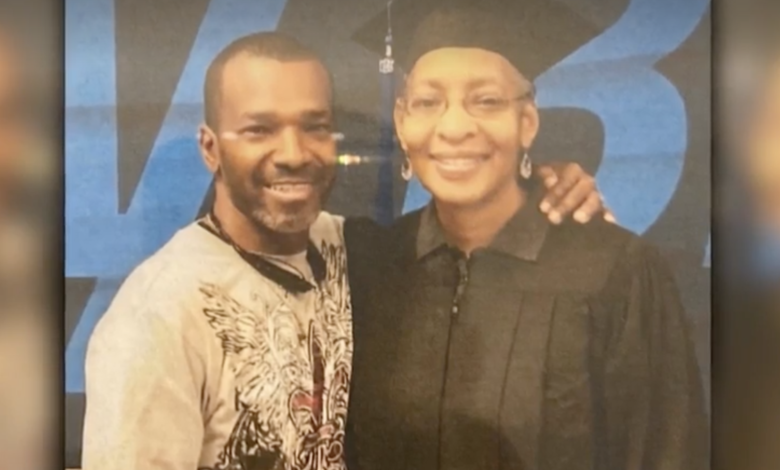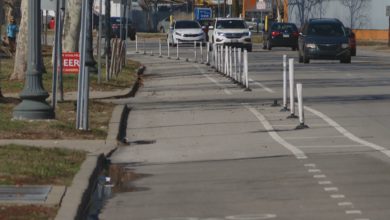

Alberta Brown is a beloved paraprofessional with Omaha Public Schools in Omaha, Nebraska. But her family is unsure if she will return back to work following a series of brain aneurysms, which doctors tell them are quite rare."To see her vulnerable, like that is, it's an emotional roller coaster," said Alberta’s husband, Al Brown. “She’s the love of my life.”The past year has been just that — an emotional roller coaster. It began in January, when the couple contracted COVID-19."She had about five-percent energy level," Brown said of his wife’s battle with the virus. Brown's niece, Tiere White, said her aunt never made a full recovery."It's just been constant sickness back to back," White said.Now, Alberta is in the hospital after suffering a series of brain aneurysms."The doctor said that there's been a few cases similar, but nothing like this," Brown’s husband said.White believes her aunt's battle with COVID-19 is to blame for the aneurysms. Alberta has already undergone two surgeries, and she may need a third."So many unknowns," White said.UNMC Dr. Mark Rupp did not treat Brown, but he tells sister staton KETV doctors are working diligently to find answers about long-haul COVID-19. Still, questions linger."This is a disease that just, you know, continues to throw curveballs at us. And we continue to learn a lot as we progress," Rupp said.Doctors are seeing a lot of neurological problems in long-haul COVID-19 patients."Undoubtedly, some people are going to, you know, have a disability for the remainder of their lives, unfortunately, because of this disease," Rupp said, adding that COVID-19 can trigger a disease that had been lying dormant. "COVID-19 causes, you know, disruption of a lot of different organ systems." Rupp said the best way to avoid long-haul COVID-19 is to get vaccinated and help minimize the spread of the disease. Alberta Brown's family is confident she'll make a full recovery."She's still here, so that tells us something about her strength," White said.
Alberta Brown is a beloved paraprofessional with Omaha Public Schools in Omaha, Nebraska. But her family is unsure if she will return back to work following a series of brain aneurysms, which doctors tell them are quite rare.
"To see her vulnerable, like that is, it's an emotional roller coaster," said Alberta’s husband, Al Brown. “She’s the love of my life.”
The past year has been just that — an emotional roller coaster. It began in January, when the couple contracted COVID-19.
"She had about five-percent energy level," Brown said of his wife’s battle with the virus.
Brown's niece, Tiere White, said her aunt never made a full recovery.
"It's just been constant sickness back to back," White said.
Now, Alberta is in the hospital after suffering a series of brain aneurysms.
"The doctor said that there's been a few cases similar, but nothing like this," Brown’s husband said.
White believes her aunt's battle with COVID-19 is to blame for the aneurysms. Alberta has already undergone two surgeries, and she may need a third.
"So many unknowns," White said.
UNMC Dr. Mark Rupp did not treat Brown, but he tells sister staton KETV doctors are working diligently to find answers about long-haul COVID-19. Still, questions linger.
"This is a disease that just, you know, continues to throw curveballs at us. And we continue to learn a lot as we progress," Rupp said.
Doctors are seeing a lot of neurological problems in long-haul COVID-19 patients.
"Undoubtedly, some people are going to, you know, have a disability for the remainder of their lives, unfortunately, because of this disease," Rupp said, adding that COVID-19 can trigger a disease that had been lying dormant. "COVID-19 causes, you know, disruption of a lot of different organ systems."
Rupp said the best way to avoid long-haul COVID-19 is to get vaccinated and help minimize the spread of the disease.
Alberta Brown's family is confident she'll make a full recovery.
"She's still here, so that tells us something about her strength," White said.
Source link









